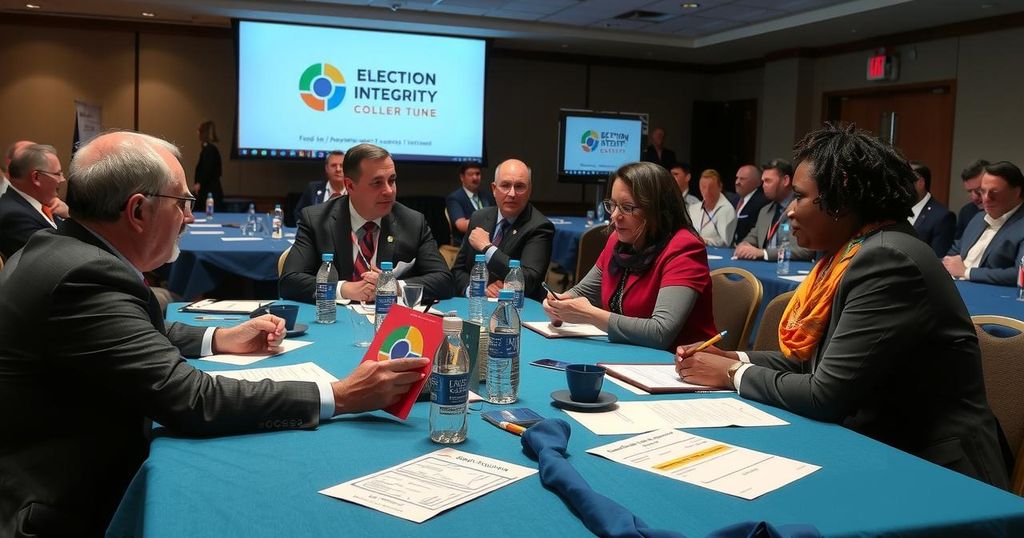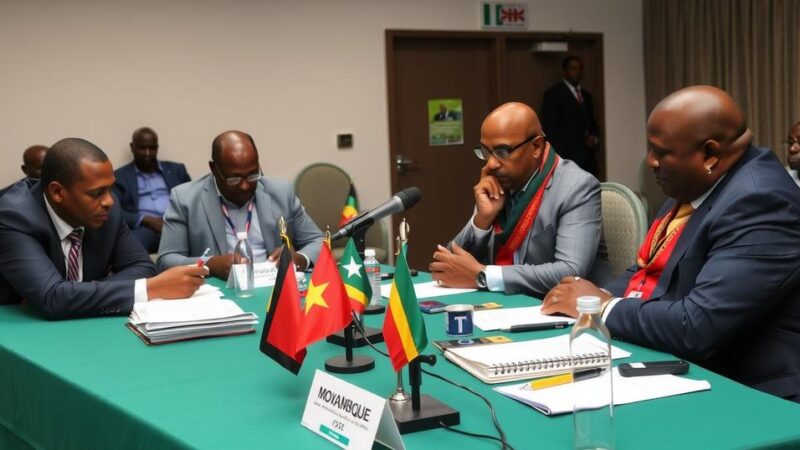The IGF 2024 session addressed the rising threats to election integrity posed by misinformation and digital technologies. Experts discussed the urgent need for collaborative approaches to mitigate these risks, particularly in light of the unprecedented number of elections globally in 2024. Key topics included the impact of disinformation, the digital divide affecting the Global South, and the accountability of tech companies in safeguarding democratic processes.
The session at the Internet Governance Forum (IGF) 2024 titled ‘Internet governance and elections: maximising the potential for trust and addressing risks’ brought together an array of experts to address the profound threats to election integrity posed by misinformation and emerging technological advancements. With a notable increase in disinformation due to digital platforms, panellists underscored the need for collective effort to combat these challenges, especially in a year characterized by an unprecedented number of global elections.
The implications of disinformation are alarming, as Tawfik Jelassi from UNESCO remarked that misinformation spreads tenfold faster than factual content, which in turn engenders a climate of distrust surrounding electoral processes. William Bird from Media Monitoring Africa and Lina Viltrakiene of the Lithuanian government deliberated on the harmful manipulation of digital platforms by malicious actors who create misleading narratives using deepfakes and other deceptive tactics, intensifying voter confusion.
Elizabeth Orembo from ICT Africa drew attention to the significant digital inequalities present in the Global South, where uneven media access exacerbates susceptibility to misinformation. She advocated for bespoke strategies rather than one-size-fits-all policies imposed by technology firms.
During the session, representatives from Meta, including Sezen Yesil, outlined their initiatives to mitigate electoral threats, such as enhancing transparency for political advertising and strengthening measures against fictitious accounts. Despite the persistent risks posed by AI-driven disinformation, there remain calls for heightened accountability from technology companies, primarily through legislative measures like the EU’s Digital Services Act to address digital malice effectively.
The experts collectively articulated that maintaining election integrity necessitates a unified, multi-stakeholder approach involving government entities, civil society, academia, and the tech community. Rosemary Sinclair of AUDA emphasized that fostering democracy is a collaborative endeavor that should transcend electoral cycles and highlighted the IGF’s pivotal role in facilitating ongoing dialogue and strategizing effective governance solutions.
As the participants concluded, the efforts towards ensuring election integrity must remain vigilant and proactive in the digital landscape, promoting trust and equity within electoral frameworks. The significance of the IGF as a platform for ongoing global dialogue was reaffirmed, with an emphasis on enhancing its impact in addressing governance challenges going forward.
In the context of rising concerns about the integrity of elections in the digital era, the IGF 2024 sought to address these challenges through expert discussions. The session acknowledged the increasing prevalence of misinformation and disinformation, particularly via social media and emerging technologies such as AI and deepfakes. With over 65 elections set to occur globally, the urgency to develop strategies to combat these threats has intensified, drawing attention to the role of digital platforms and the importance of collaborative solutions.
The insights from the IGF 2024 highlight a critical moment for safeguarding election integrity amidst the growing threats of misinformation and technological advancements. The emphasis on a multi-stakeholder approach underscores the necessity for coordinated efforts from all sectors of society, aiming to foster trust and ensure democratic processes remain intact in the digital landscape. The forum’s role in catalyzing ongoing discussions and establishing frameworks for effective governance is more crucial than ever, as the world navigates complex electoral challenges.
Original Source: dig.watch







